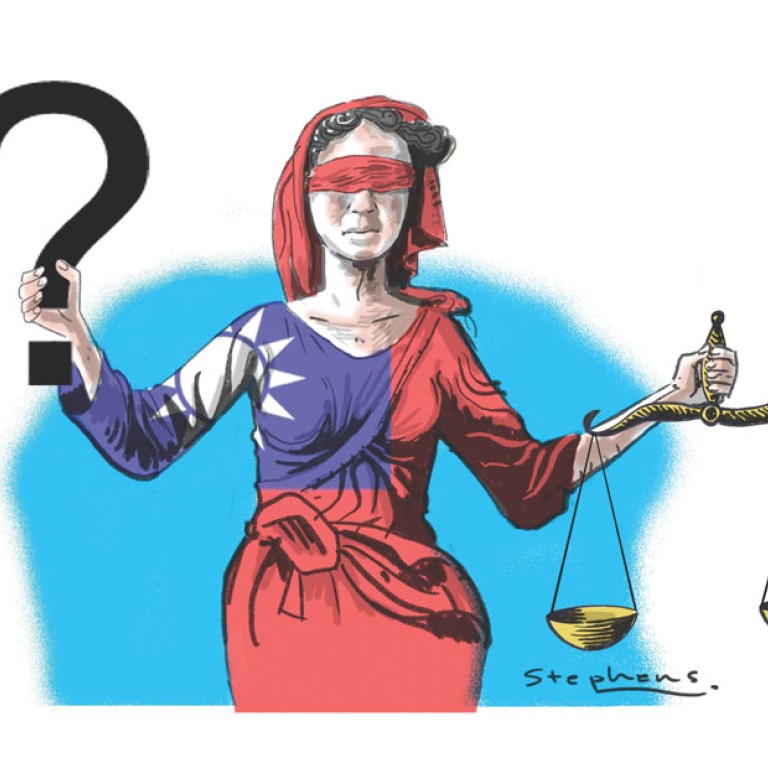
Taiwan's handling of murder case raises question of cross-strait co-operation
Jerome A. Cohen and Yu-Jie Chen say the execution of two Taiwanese brothers for murder was troubling for the manner of their conviction - the reliance on unexamined evidence from mainland China
Although the death penalty continues to be popular in Taiwan, the government's April 29 execution of two of its citizens, brothers Tu Ming-lang and Tu Ming-hsiung, for allegedly committing five murders in Guangdong in 2001 has understandably aroused public concern.
Despite a decade of judicial rulings, many informed observers question whether the convictions were consistent with the island's impressive progress in bringing due process of law to its criminal justice system. The case also revealed Taiwan's failure to take full advantage of cross-strait judicial co-operation.
The suspects - including their father, who died in 2010 while still in detention - were arrested in Taiwan shortly after the murders occurred. They were prosecuted in Tainan District Court for murder and several related offences.
In spring 2002, that court ordered Taiwanese police to ask Guangdong police for all evidence collected in the case, and a Taiwanese official later met Guangdong police in Macau, where he received forensic reports and witness statements obtained during investigation.
After reviewing the evidence at trial, however, in July 2002 the district court acquitted all three defendants of murder, while convicting them of two of the lesser offences.
One of the prosecution's key pieces of evidence was the written statements Guangdong police took from a local taxi driver. On the first day the driver was interviewed, he failed to tell the police what he remembered in a second interview the next day - that, before the murders, he had bought the defendants rubber gloves used in the killings and later driven the brothers to buy the murder weapon, a melon knife.
Since Taiwanese prosecutors did not make the Chinese driver available to testify in person, the court admitted his statements even though they constituted hearsay that was never subjected to defence cross-examination.
But this hearsay was contradicted at trial (and in pre-trial testimony) by a live defence witness, a Taiwanese businessman named Chang, who had been in Guangdong and claimed that the brothers had been with him and not the taxi driver. The court decided the driver's hearsay was unreliable.
Yet the prosecution appealed to the Tainan High Court, which held a second trial, reversed the lower court acquittals, convicted all three defendants on all charges and sentenced them to death. Defendants then appealed to the Supreme Court, and the case bounced between the Supreme and High Courts on six occasions.
During this process, the witness, Chang, changed his testimony. He no longer remembered that the brothers had been with him. That led the High Court to adopt the taxi driver's hearsay.
There was also other circumstantial evidence, including testimony that, immediately after the murders, the father repaid substantial debts and repatriated a large amount of cash.
Beginning in 2006, the High Court, acknowledging the importance of the taxi driver's testimony, decided to secure his appearance in court. On several occasions, it asked Taiwan's semi-official Straits Exchange Foundation to seek the help of its mainland counterpart in finding the missing mainland witness, but the foundation's requests never received any reply.
Yet neither the High Court nor the prosecution, which was obligated to prove the defendants' guilt beyond reasonable doubt, sought co-operation from Guangdong police, prosecutors, or courts, even after the 2009 signing of the cross-strait mutual judicial assistance agreement designed to facilitate such co-operation.
Instead, the High Court concluded that this crucial witness was unavailable and that his hearsay - never cross-examined - was the best available evidence.
The Supreme Court's final decision in 2012 complacently stated that the defendants' right to cross-examination had not been violated because of the "practical difficulty" of finding mainland witnesses.
This is a dangerous precedent for Taiwan's legal system. It may have denied defendants their most fundamental right - to question a crucial witness. That right is protected under the island's constitution as well as the International Covenant on Civil and Political Rights that Taiwan adopted in 2009, the same year it concluded the cross-strait mutual judicial assistance agreement.
Rather than execute the Tu brothers, the government should have made full use of that agreement, which has proved useful in other respects, to remove the reasonable doubt staining these convictions.
Even Mao Zedong, one of the worst killers of all time, recognised that, "People's heads are not like leeks. When you cut them off, they will not grow again."


